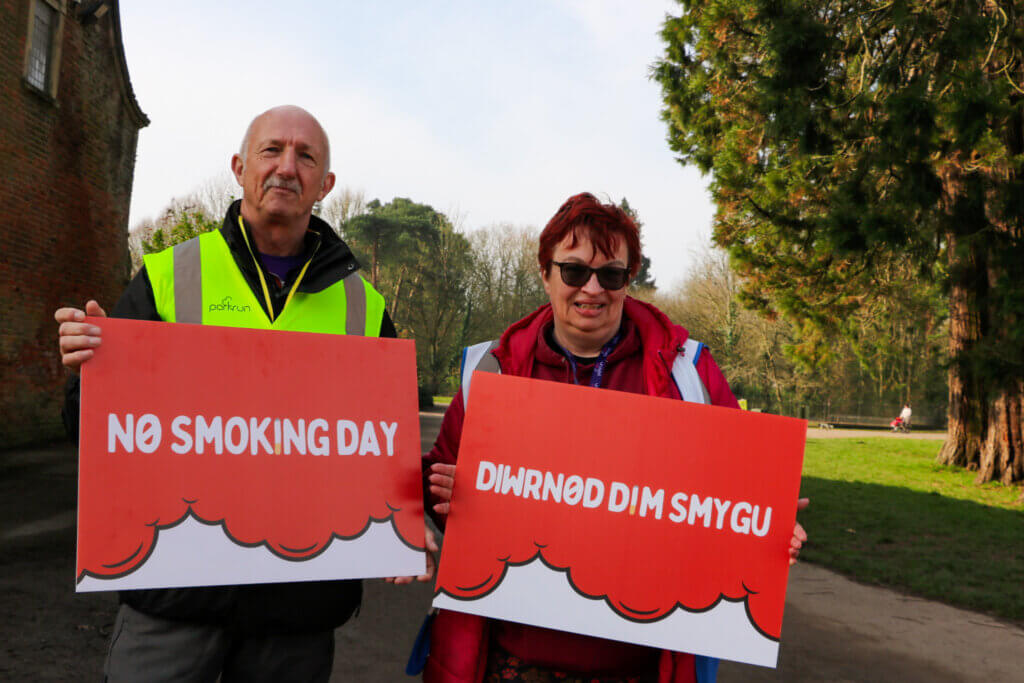WHEN it comes to quitting cigarettes, cravings are the toughest challenge you will face.
In the first week after quitting, most smokers will experience powerful cravings for a cigarette because they have become addicted to nicotine. But fear not, nicotine replacement therapy (NRT), behavioural changes and support from a stop smoking service can help you to resist temptation. If fear of coping with cravings is holding you back, read our guide to find out why they happen and how to fight back.
Understanding nicotine addiction
The main reason why smokers find it so hard to quit is because cigarettes contain nicotine which is highly addictive. Nicotine alters the balance of two chemicals in smokers’ brains, dopamine and noradrenaline. This produces feelings of pleasure and appears to reduce stress and anxiety. Smokers become dependent on this nicotine rush and over time, as their brain gets used to the nicotine, they smoke more to produce the same effect. “Cravings are natural. It’s a way of understanding that behaviours are changing.”
– Steve Clarke is a clinical and therapy services manager for The Priory Group
What happens when you quit
When you stop smoking the levels of dopamine and noradrenaline in your brain change leading to feelings of anxiety, irritability and even depression. Craving nicotine is a normal response to this situation, as your brain knows nicotine will be an instant fix to make those unpleasant feelings go away but don’t lose hope there are ways to combat this.
Step One – Understand your cravings
There are two types of cravings;
- One is the steady, constant craving for a cigarette that you will feel particularly strongly in the first week of giving up. Gradually this feeling will subside as the weeks go on
- The other type of craving is a sudden and intense urge to smoke. This craving is often triggered by a situation in which you would usually smoke, such as after a meal or while you’re drinking a cup of coffee.
Step Two – Coping Methods
Research has shown that going cold turkey isn’t necessarily the best way to quit as cravings can become overpowering.
Only 3 in every 100 smokers manages to successfully quit through will power alone. According to the NHS there are three effective ways to tackle cravings. No one solution works for everybody and often it’s a combination of different methods that helps smokers to finally kick the habit.
1. Nicotine replacement therapy
NRT continues to provide your body with nicotine after you stop smoking, without the toxic chemicals you get from a cigarette. It comes in the form of gum, patches, lozenges, microtabs, inhalers, nasal spray, mouth spray and oral strips. Talk to a pharmacist, GP or a smoking cessation advisor to find out which would suit you best and how you can use different forms of NRT in combination with each other for the best effects.
2. Prescription medication
There are two types of prescription tablets you can take to cope with nicotine cravings – Champix (varencline) and Zyban (bupropion). You can start taking them a week or two before you stop smoking as they take a few days to work. You cannot take them if you are pregnant, under 18 or have some pre-existing medical conditions
3. Self help
While NRT and prescription medication will help you to cope with physical cravings for nicotine, it’s important too to make changes to your lifestyle. Avoiding situations that could trigger nicotine cravings is particularly helpful. Be aware of moments when you would usually have a cigarette and distract yourself with another activity instead. Try to steer clear of stressful times or making big life decisions while you are withdrawing from cigarettes. Prepare yourself mentally before special events such as holidays, weddings or parties when you would usually smoke, and make sure you go equipped with NRT in case the urge for nicotine strikes.
As cravings only last a few minutes, distracting yourself with another activity works wonders. Some people find that exercise helps. So, if you feel the urge to smoke, why not go for a walk, jog or swim instead. Activities that involve keeping your hands busy can be useful too. If you enjoy craft activities, start a new project to coincide with you giving up smoking. Cooking, gardening, housework, board games and puzzles can also help.
Enlist the help of family and friends and tell them of your plans to give up smoking in advance so that they can be prepared to offer moral support and distract you from cravings.
If your resolve weakens remind yourself why you are giving up smoking and remember that the cravings will pass and a healthier, smoke-free life awaits you.[









